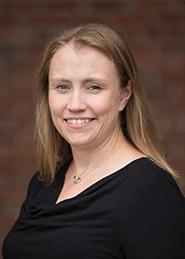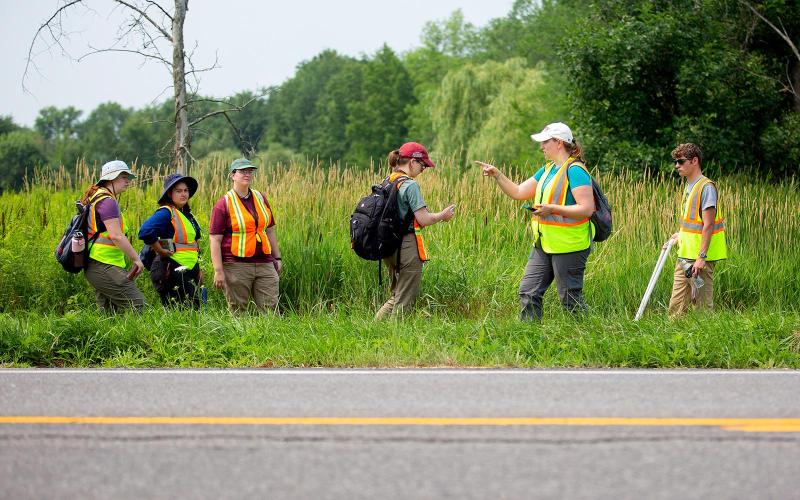Faculty Bio
 Dr. Jessica Pearson is a North Country native and received her PhD in 2011 from Columbia University after completing a dissertation on deforestation in protected areas in Central Africa using remote sensing and GIS techniques that will be applicable to studying changes in these wetlands in the North Country. Dr. Pearson's undergraduate education at Princeton University was in the department of Ecology and Evolutionary Biology, focusing on conservation which has given her the ability to establish scientifically valid research methods as well as plant identification techniques. Her work post-undergraduate was looking at zebra habitat use in central Kenya, specifically looking at vegetation measures. Each of these contexts has provided Dr. Pearson with the ability to examine landscape level conservation issues, and the knowledge and ability to carry out the survey and GIS analysis.
Dr. Jessica Pearson is a North Country native and received her PhD in 2011 from Columbia University after completing a dissertation on deforestation in protected areas in Central Africa using remote sensing and GIS techniques that will be applicable to studying changes in these wetlands in the North Country. Dr. Pearson's undergraduate education at Princeton University was in the department of Ecology and Evolutionary Biology, focusing on conservation which has given her the ability to establish scientifically valid research methods as well as plant identification techniques. Her work post-undergraduate was looking at zebra habitat use in central Kenya, specifically looking at vegetation measures. Each of these contexts has provided Dr. Pearson with the ability to examine landscape level conservation issues, and the knowledge and ability to carry out the survey and GIS analysis.
Project Overview
Dr. Pearson's Kilmer Lab focuses on invasive plants in the North Country and implementing a biological control solution. Purple loosestrife (Lythrum salicaria) is an invasive wetland plant that grows throughout the North Country, particularly along roadsides or in wetlands. Dr. Pearson has worked with more than a dozen SUNY Potsdam undergraduates since 2017 to map this invasion, documenting large areas of infestation along roadsides. Our research has shown how important road culverts are to increasing the spread of purple loosestrife. We’ve mapped a lot of areas and studied how that spread moves through the landscape. We had our research published in several articles (Scientific Reports and Adirondack Journal of Environmental Studies) since we started work. In addition, to combat the spread of purple loosestrife, we’ve been studying a leaf-eating beetle, Galerucella species. We’ve grown a beetle hatchery each spring into summer at SUNY Potsdam – raising and releasing more than 20,000 beetles throughout our region. We expanded our delivery of beetles to the Akwesasne Mohawk reservation in summer 2022. We hope to analyze this beetle data and examine where there hasn’t been enough impact of those introductions to decrease purple loosestrife.
Students
- Ash Armstrong
- Kaitlyn Bernhardt
- Mckensey Biggie
- Kelly Bloom
- Alyssa Card
- Theresa Cerosaletti
- Sam Ernst
- Ella Hinckley
- Mckelvie Jensen
- Matt King
- Eileen Liew
- Robert Luckman
- Samantha Marrill
- Owen Maskell
- Randy Monica Jr.
- Nolan Rishe
- Grace Romer
- Laura Schappert
- Gabby Toriseva
"I think it’s a great starting opportunity for anyone who wants to be involved in research. Dr. Pearson is really good about easing students in and giving them step by step instructions".
Environmental Studies/Politics
Questions?
Students interested in participating in this project can contact Dr. Jessica Pearson at rogersje@potsdam.edu or (315) 267-2522.

